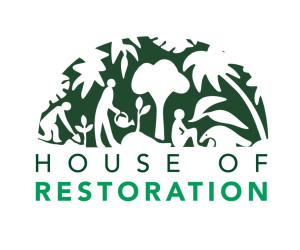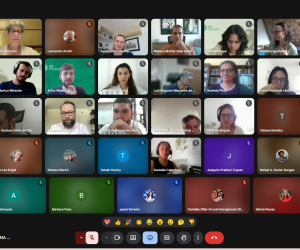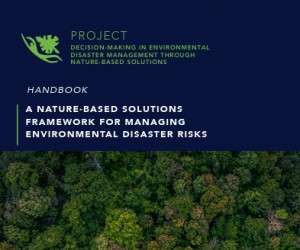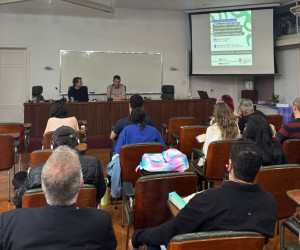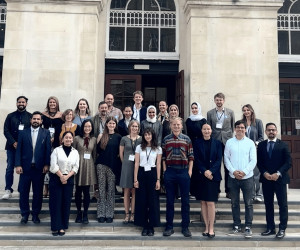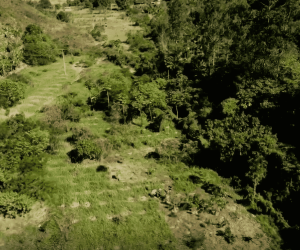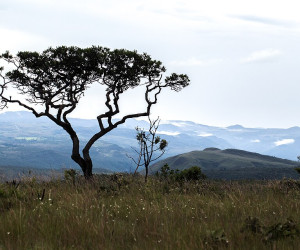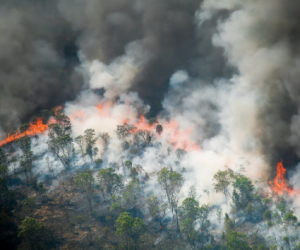News > Event
16.10.25
In Brazil–Germany collaboration, IIS promotes event on ecological restoration and climate resilience
IIS, in partnership with Senckenberg Nature Research (SGN), held the event “Restoration at the Crossroads: linking global and urban ecosystem recovery for a climate-resilient future” in Rio de Janeiro. In addition to bringing together Brazilian and German researchers for two days of internal workshops, a public seminar was held on 8 October to promote knowledge exchange and recommendations to scale up ecological restoration and ensure climate resilience. Aiming to integrate science, policy, and practice, the seminar featured representatives from the public sector and civil society organisations from both Brazil and Germany in panel discussions.
“IIS has been working to connect scientific evidence and public policies that enable effective ecosystem restoration, considering both local and global contexts,” said Bruna Pavani, IIS Institutional Engagement Lead.
The opening session included Aline Rodrigues, IIS Nature-based Solutions Strategy Lead and Associate Professor in the Professional Master’s in Sustainability Science at PUC-Rio, and Katharina Fourier, Director of the German Centre for Research and Innovation (DWIH) São Paulo and the German Academic Exchange Service (DAAD) Brazil.
Science and innovation as central to restoration
Moderated by Taruhim Quadros, Restoration Lead at WWF-Brazil, the first panel, Science and innovation for large-scale ecosystem restoration, highlighted the use of data, artificial intelligence, and ecological modelling in restoration strategies.
Jessica Hetzer, Research Associate at SGN, emphasised the importance of linking local and global scales. “Spatial modelling tools and data analysis are essential to provide an analytical framework to guide decision-making in ecological restoration,” she explained during the panel.
Viviane Figueiredo, Manager of Landscape and Forest Restoration at CI-Brasil, defended the incorporation of social dimensions in projects. “No restoration initiative can succeed without the direct involvement of local communities. Scientific knowledge must move hand in hand with the people who live in and depend on these ecosystems,” she said.
Bernardo Strassburg, IIS Director of Science and Innovation and Professor at PUC-Rio, reinforced the importance of technological innovation in restoration. “Restoration is an instrument that brings together multiple benefits for climate, biodiversity, and the economy, being one of the most concrete responses to the environmental crisis we face,” he commented.
Governance and partnerships for large-scale restoration
The second panel, Partnerships and governance to enable large-scale restoration, addressed the importance of coordination between governments, the private sector, and civil society, under the moderation of Fernanda Gomes, IIS Knowledge Management and Communication Manager.
Thiago Belote, Director of Forests at the Ministry of the Environment and Climate Change (MMA/SBio/DFlo), stressed that “restoration must be viewed as a strategic public policy, linked to financing mechanisms and regulatory instruments that ensure scale and continuity.”
Mariana Oliveira, Director of Forests and Land Use at WRI Brazil, pointed out the need for integration between national policies and local projects. “Environmental commitments only become effective when translated into concrete actions and monitored transparently,” she noted.
Julio Tymus, Ecological Restoration Coordinator at TNC-Brazil, reminded that “the success of restoration depends both on community engagement and on the use of scientific evidence for long-term planning.”
Closing the event, Aidin Niamir, Head of International Science Policy at SGN, highlighted that “scientific cooperation between Brazil and Germany strengthens the foundations for consistent and innovative environmental policies.” Bernardo Strassburg concluded by stating that “knowledge exchange and joint solution-building are key to ensuring that ecological restoration reaches global scale and generates measurable impacts on biodiversity and climate resilience.”
In addition to the IIS–SGN partnership, the event was co-organised by DWIH São Paulo and PUC-Rio, as part of the preparatory actions for COP30, to be held in November in Belém, Pará.

